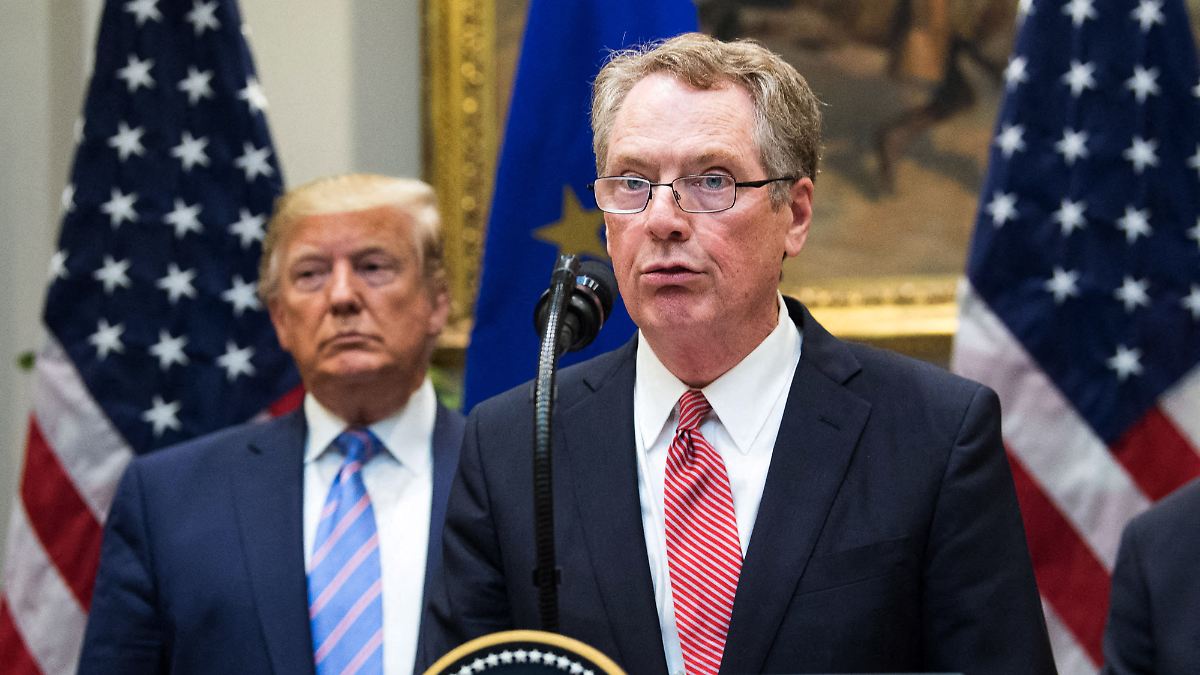Central bank destroyer Scott Bessent, “money machine” John Paulson or trade warrior Robert Lighthizer: whoever lands the job as US Treasury Secretary will become the most important man in Washington after Donald Trump. We are looking for a willing executor who will transform the global economy for America’s benefit.
Just a few days after Trump’s triumph, the personnel carousel in Washington begins to turn. The focus is on the most important position in the US government after the president himself: the treasury secretary of the world’s largest economy. According to media reports, Donald Trump has already shortlisted several men for the position. But they all have one description in common: yes-men with the potential to shock the global economy.
At the moment, hedge fund manager Scott Bessent in particular seems to have good chances: he was one of Donald Trump’s most important donors in the election campaign and his most important economic advisor. According to the Financial Times, the extremely wealthy founder of the investment firm Key Square Capital is already in talks with possible deputies for his position as finance minister.
Bessent told CNBC there had been “no discussions about jobs” but was open to a position both inside and outside of government. He could even imagine a role as reconstruction representative for Ukraine. In any case, Bessent is loyal to Trump: “I will do everything President Trump asks.”
“Central bank destroyer” and customs friend
Bessent became famous when he bet with George Soros against the British pound and the Japanese yen in the early 1990s, bringing in billions for the liberal philanthropist’s fund. From this time on, Bessent was also nicknamed “The Man Who Destroyed the Central Bank of Japan”. Although he is a supporter of Trump’s tariff policies, he is still likely to be the comparatively most moderate candidate for the post of Treasury Secretary.
Unlike most economists, Bessent does not see Trump’s planned tariffs as a driver of inflation, but as a “one-time price adjustment”: Bessent believes that the simultaneous expansion of US oil production and the deregulation of the economy would offset the price pressure. However, he advocates a gradual introduction and sees it as more of a maximalist negotiation tactic: “escalation to de-escalation” in order to extort concessions from trading partners. He also represents more traditional views on other topics and believes, for example, in a strong US dollar as a key and reserve currency for world trade.
The “money machine” from Trump’s neighborhood
In addition to Bessent, John Paulson is also a promising candidate: He is also a hedge fund boss and a Trump donor. In addition, the multiple billionaire is not only ideologically even more in line with Trump, but also has more in common personally with the next president: like Trump, he was born in Queens, has a messy divorce behind him and owns a luxury villa on The Beach in Palm Beach, Florida. In April, he hosted a fundraising dinner there and raised $50 million for Trump in one evening.
That’s not the only reason why Trump calls Paulson “a money machine”: he became rich and famous when he bet against the US mortgage market during the financial crisis. In 2012, he and other investors sold one of his golf hotels to Trump for $150 million. Paulson called the numerous investigations against Trump “politically motivated” and the storming of the Capitol “an out-of-control demonstration.” His “top priority” in office would be expanding Trump’s tax breaks for the super-rich and eliminating Biden’s renewable energy subsidies.
Avid trade warrior with China obsession
But the most radical of the candidates is Robert Lighthizer. He previously served as deputy trade representative in the Reagan administration in the 1980s. He then disappeared into obscurity for decades, fighting as a lawyer to protect the US steel industry from foreign competition. In Trump’s first term, he became the top U.S. trade representative and played a key role in pushing forward the renegotiation of the free trade agreement with Mexico and Canada. And thus initiated the USA’s move away from the multilateral, rules-based global economy towards a nationalist and protectionist race between individual states.
After Trump was voted out, he joined the pro-Trump think tank America First Policy Institute and wrote a book outlining his fundamental views. Lighthizer can rightly be called the architect of Trump’s trade policy: he is an ardent supporter of the tariff war with China and, unlike Bessent, like Trump himself, advocates a devaluation of the dollar in order to boost US exports.
As Treasury Secretary, Lighthizer would have even more power to implement his protectionist vision and set the United States on a course that serves its own economic interests rather than international stability. His aggressive economic nationalism has long since spread across the entire political spectrum since the first Trump administration: The Biden administration has also maintained Trump’s China tariffs. Regardless of whether Bessent, Paulson or Lighthizer win the race for Treasury Secretary: Either way, “America First” is not just a passing episode, but a turning point that is likely to shape US economic policy for decades.


